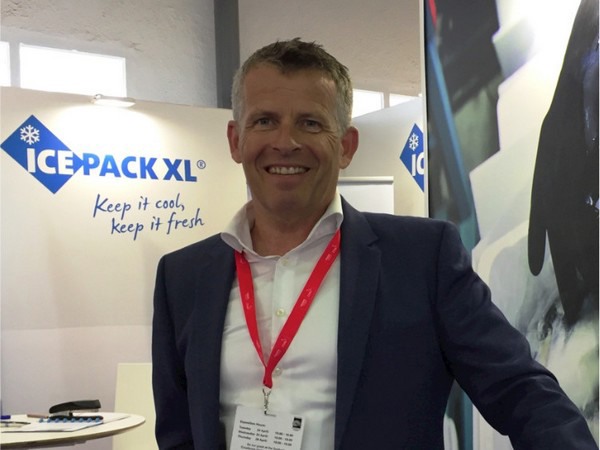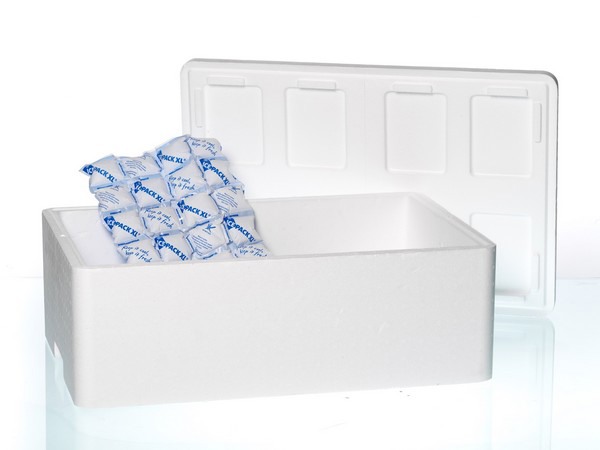People often send, for example, broccoli from the Netherlands to Spain. Then they scoop a decent amount of ice over its crate. That's to keep the broccoli in optimal condition. That, however, has a drawback. Things become a mess on arrival. There are puddles of water under all the pallets. Hygiene is also somewhat questionable. With an ice-pack, you don't have this problem. Using these also targets a product's temperature better.

Inter Fresh Concepts is a Dutch company that specializes in providing such solutions. "Our company's background lies with the fruit and vegetable sector. So we have an understanding for that sector, in particular," says Leon Hoogervorst, Inter Fresh Concepts' director. "We can give clients quick, practical solutions or advice."
Solution for outside of the cooling cell
Inter Fresh Concepts' icepacks are mainly used to ensure quality. That's for fruit and vegetables at variable temperatures. That can, for example, happen during cross-docking. Then products have to wait for the next truck. Or at an airport terminal, before the cargo is loaded onto an airplane.
"With icepacks, you can continue guaranteeing temperatures throughout the entire trip. We use thickened ice for our products. That allows them to cool for more than 24 hours. That's double what you'd get with conventional cooling elements. During air transport, we often also used isolating pallet covers too. These protect the goods against temperature changes."

Online sales
Leon's seen a rising demand for such cooling elements in recent months. That's from the retail sector. "The coronavirus has led to an increase in supermarkets' number of online orders. The large retailers' delivery services deliver these door-to-door. That's often done in small, unconditioned delivery vans," says Leon.
"But these cooling products keep these goods cold for long enough. The ice-packs can also be reused. Last week's heatwave even caused a peak in demand. Many traders wanted more certainty with a cooling element. For both quality and to keep to the Dutch Food and Consumer Product Safety Authority's standards."
New development
Inter Fresh Concepts also focuses on sustainability. "We're currently mainly busy developing climate-neutral packaging solutions," explains Hoogervorst. "Besides the Ice Pack Eco, we recently launched the EcoCoolBox too. That's an isolated box with comparable isolation characteristics to EPS. But, it's made of 100% cardboard."
Better control over the correct temperature
Cooling elements aren't only used for bridging the transit times between the refrigeration room and truck. Leon also sees more opportunities for keeping the perfect temperature. "It's well-known in the pharmaceutical industry already. But, who knows - there might be possibilities for this in the fruit and vegetable sector too."
"For example, we have several cooling elements in our assortment that can keep something at, for instance, 15°C. That's because the gel in these packs has been modified. It, therefore, only starts melting at about that temperature," concludes Leon.
For more informationLeon Hoogervorst
Inter Fresh Concepts
5 Troelstralaan
2211 AP, Noordwijkerhout, NL
Tel: +31 (0) 252 340 687
Email: [email protected]
website: www.interfreshconcepts.nl
